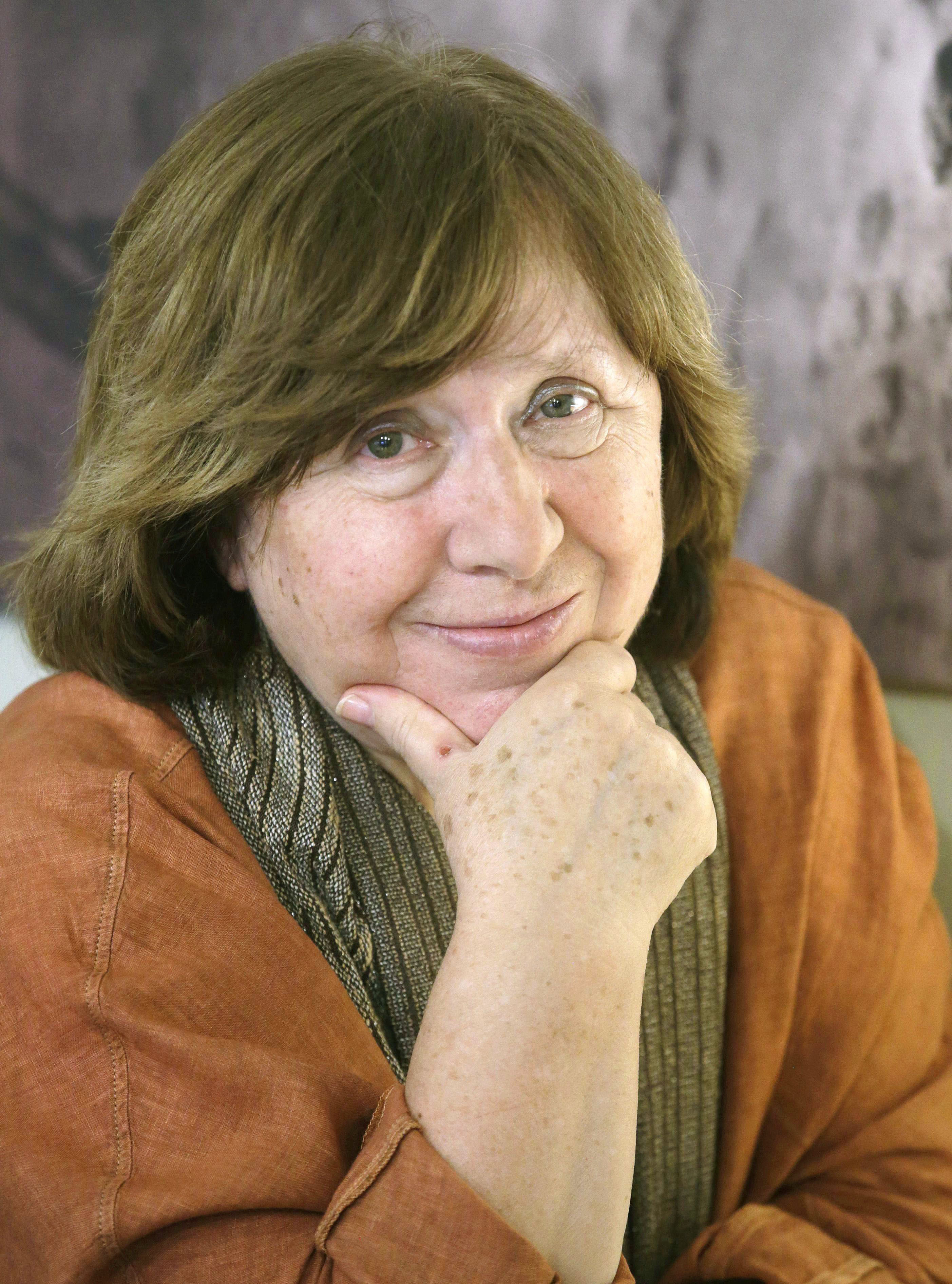Alexievich, Svetlana (1948-…), a journalist and historical chronicler from Belarus, was awarded the 2015 Nobel Prize in literature. Belarus is a nation in eastern Europe, on Russia’s western border. Alexievich’s unusual works blend oral histories and narrative descriptions of epic events in Russian life during the 1900’s. She is best known for writing about women who lived through World War II (1939-1945), the Soviet Union’s occupation of Afghanistan from 1979 to 1989, and the 1986 nuclear disaster at Chernobyl (now Chornobyl) in Ukraine, a neighboring country of Belarus.

Alexievich is the first Belarusian to win the Nobel Prize in literature. She is also one of the few winners whose major works are nonfiction.
Svetlana Alexandrovna Alexievich was born on May 31, 1948, in the town of Stanislav, now Ivano-Frankivsk, in Ukraine, which was then a republic of the Soviet Union. She grew up in what is now Belarus, then also a Soviet republic, living with her family in a village where both her parents were schoolteachers. Alexievich studied journalism in school. After graduation, she joined a newspaper in the seaport city of Brest in northwestern France as a reporter.
Alexievich gained recognition with her first book, War’s Unwomanly Face (1985). The work is based on interviews with hundreds of women who fought against the Nazis during World War II. It is the first book in a projected series called “Voices of Utopia” that portrays life in the former Soviet Union from the viewpoint of ordinary citizens.
Alexievich’s Zinky Boys: Soviet Voices from a Forgotten War (1990) is a grim account of the Soviet Union’s military conflict in Afghanistan, written from the viewpoint of the common Soviet soldier. Its title refers to the zinc coffins in which the bodies of Soviet soldiers killed in the war were sent home. The oral history Voices from Chernobyl (1997) is the product of more than 500 interviews collected over 10 years. In Secondhand Time: The Last of the Soviets (2016), Alexievich collected scores of interviews that portray life in Russia after the collapse of the Soviet Union in the early 1990’s. In Last Witnesses: An Oral History of the Children of World War II (2019), she related the wartime memories of people who lived through World War II as children in the Soviet Union.
Many of Alexievich’s works are critical of the governments of Russia and her native Belarus. Her criticism has forced her periodically to live abroad.
